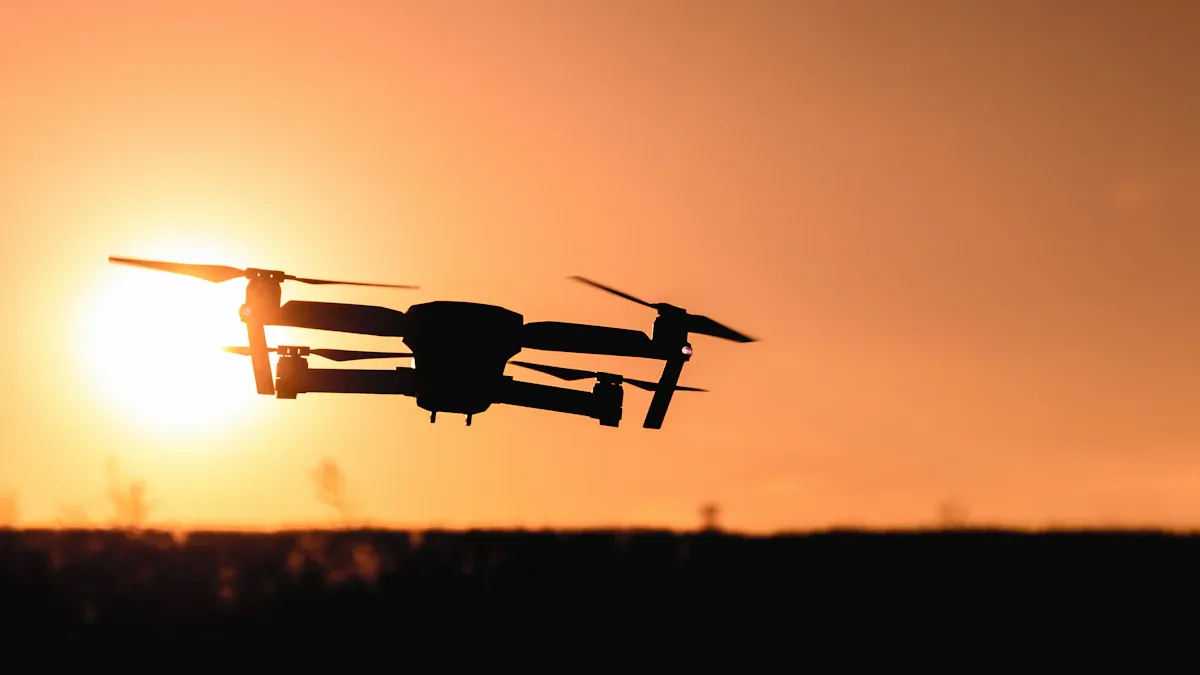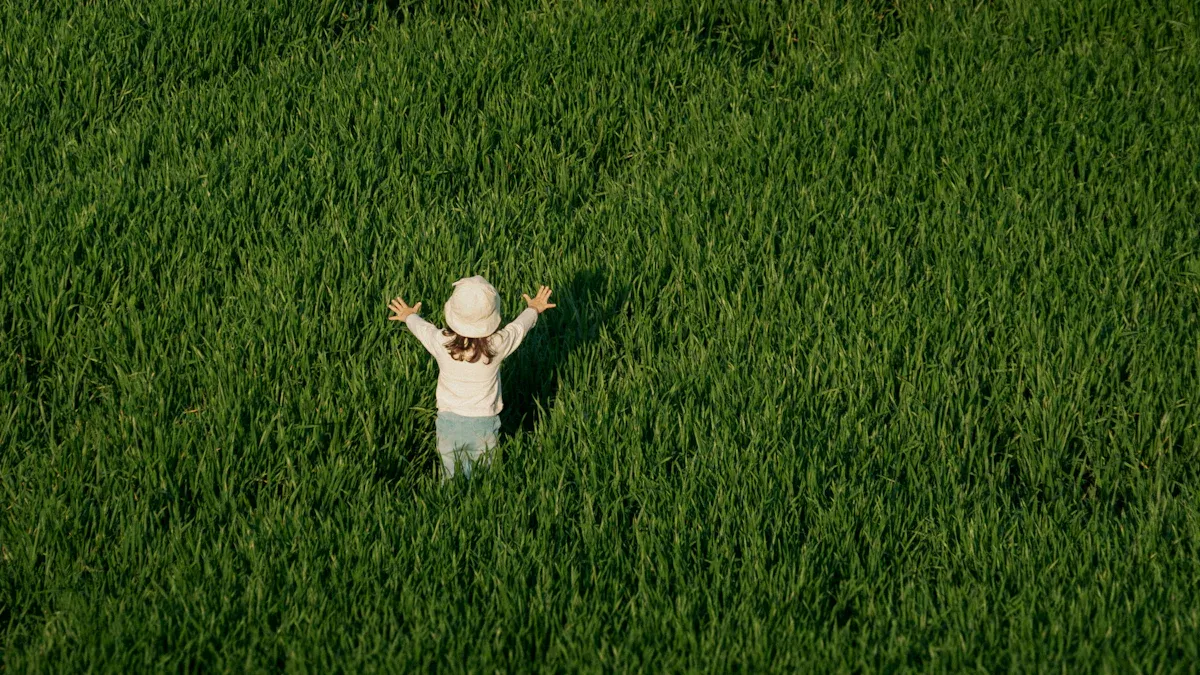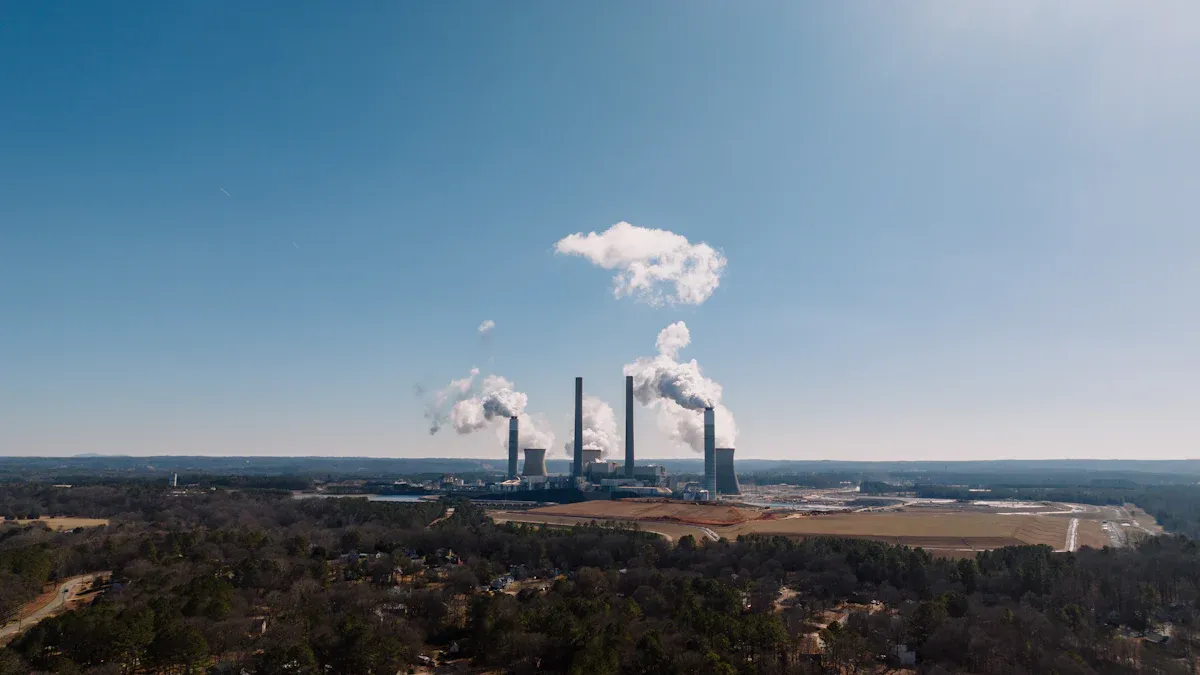Ethical concerns of using drones in retail deliveries

You see drones changing how retail deliveries happen every day. You notice major companies like Amazon and Walmart testing drone delivery. JD.com sends packages to remote villages in China using this technology. The push for fast, contactless service grows as online shopping increases. When you think about ethical concerns, privacy, safety, surveillance, job loss, environmental impact, and regulatory challenges come to mind. You can reflect on how these issues affect you and others. Balancing innovation with responsibility matters.
Key Takeaways
Drones can invade privacy by capturing images and videos without consent. Consider advocating for stronger privacy protections.
Surveillance from drones can create discomfort. Reflect on how drone monitoring affects your sense of security.
Data collection by drones raises concerns about personal information. Ask retailers about their data protection policies.
Job displacement is a significant issue as drones automate delivery roles. Stay informed about skill development programs for affected workers.
Environmental impacts of drones include reduced emissions but increased noise pollution. Support companies that prioritize eco-friendly delivery methods.
Ethical concerns in drone delivery
Privacy risks
You see the widespread use of drones changing how companies deliver packages directly to customers. You may notice that drone delivery services bring new privacy concerns. When drones fly over your neighborhood, you might feel uneasy about who is watching. Many people worry about consumer privacy risks because drones can capture images and videos without consent.
Drones can access private spaces like backyards or balconies.
They may record footage that leads to a loss of privacy in public and private areas.
The value of privacy becomes more important as drones collect data during delivery.
Drones can create a sense of constant observation, which can cause discomfort.
You may hear about cases where drones capture images of individuals without permission.
These privacy intrusions can lead to legal issues and a feeling known as "drone anxiety."
You should think about how drone delivery can affect your privacy and the privacy of your community. The value of privacy means you want to feel safe in your own space. You may want privacy enhancements, such as stronger rules to protect your information and prevent unwanted surveillance.
Surveillance issues
You might wonder how drones differ from other delivery methods. Drones can observe large areas from above without entering your property.
Drones use high-resolution cameras and real-time video transmission.
They patrol neighborhoods quickly and can operate at night.
Drones can reach places that ground vehicles cannot.
Modern drones use sensors and LiDAR to create detailed maps.
Drones can monitor zoning violations and collect images without consent.
You may feel uneasy about surveillance because drones can watch you without you knowing. The value of privacy is challenged when drones collect data from the air. You may want privacy enhancements to limit how much information drones gather. You should consider how surveillance by drones affects your daily life and your sense of security.
Data collection
You see drones collecting data during every delivery. Drones scan houses along their flight path and may notice damaged roofs or unhealthy trees. Sometimes, drones even collect visual data from inside homes.
Drones gather large amounts of consumer data during deliveries.
Retailers must protect customer information and sensitive data.
Companies use encrypted connections and updated firmware to keep data safe.
Cyber attacks on drones are becoming more common.
Hackers can hijack drones using GPS spoofing or intercept unencrypted communications.
You may worry about corporate and government data collection. The value of privacy means you want to know how your data is stored and who can access it. You may ask for privacy enhancements, such as better security and clear rules about data use. Drone delivery brings new ethical concerns about how companies handle your personal information.
Tip: You can ask retailers about their privacy policies and how they protect your data from drones.
Privacy and surveillance

Consumer data
You see drones collecting information as they deliver packages. Drones can record video, take photos, and track delivery routes. Companies use this data to improve service and security. You may worry about how much data drones collect and who can access it. Some people feel uneasy when drones fly overhead, especially if they think their actions are being watched. Many consumers prefer ground delivery because they feel safer and less exposed. You might notice that privacy breaches can lead to targeted ads or misuse of personal details. Female and younger consumers often ask for stronger privacy protections.
Evidence Description | Findings |
|---|---|
Drone deliveries introduce a security risk due to tracking and data collection. | Consumers are concerned about being tracked, leading to a preference for ground delivery. |
Privacy breaches could lead to targeted advertisements and misuse of personal data. | Consumers are wary of potential consequences of privacy violations. |
Preference for ground vehicles due to perceived privacy security. | Many consumers feel safer using ground delivery methods. |
Privacy concerns are significant across demographics, with variations in impact. | Female and younger consumers are particularly sensitive to privacy enhancements. |
Property rights
You may wonder if drones can fly over your home without permission. Property laws give you control over the airspace above your land. The Supreme Court says you can keep unwanted drones out of your low airspace. States and cities also have rules that protect your rights. Some places ban drones from taking pictures of people on private property without consent. You can see how these laws help you feel safe and respected.
Legal Principle | Explanation |
|---|---|
Landowners' Rights | Landowners have historically controlled the airspace above their property, which includes the right to exclude unwanted intrusions. |
Supreme Court Ruling | The Supreme Court has affirmed that landowners are entitled to keep unwanted intrusions out of the airspace directly above their parcels. |
Property Law | Various property laws recognize landowners’ rights in low airspace, including condominium laws and overhang easements. |
Aspect | Description |
|---|---|
FAA Regulations | The FAA allows drone flights over private property but does not prevent legal issues at lower altitudes. |
State Laws | Individual states have laws that may restrict drone operations, particularly regarding privacy. |
Local Ordinances | Municipalities may have specific rules that limit drone flights in certain areas for safety and privacy. |
Privacy Protections | Some states prohibit capturing images of individuals on private property without consent. |
Developing Legal Landscape | Courts are increasingly addressing the balance between public safety and privacy in drone usage. |
Corporate monitoring
You may feel nervous when drones fly near your home. People sometimes wonder if companies are watching them. Even if drones do not record every move, you might believe they are a nuisance.
People could start to wonder if they are being monitored or surveilled, and even if not, they may come to believe that drones are more of a nuisance than they are worth.
Over 60% feel concerned about personal or data privacy with drone delivery.
As drone deliveries grow, you may start to see drones as surveillance tools instead of helpful machines. You might ask for more rules to protect your privacy and limit how much companies can watch you.
Safety, security, and regulation
Physical safety
You may worry about the risks drones bring to people and property. Drones can crash or collide with objects, causing injury or damage. Sometimes, drones lose control because of technical problems or bad weather. You might see a drone fall near your home or in a busy street. People feel safer when companies follow safety regulations and train operators well. You want to know that drones will not harm you or your family. Companies use insurance to cover accidents, including bodily injury and property damage. Public trust grows when you see strong safety rules and careful operators.
Tip: Ask retailers about their safety regulations and how they train drone pilots.
Security threats
You face new risks when drones deliver packages. Hackers can attack drones in several ways:
GPS spoofing tricks drones with false coordinates, causing crashes or theft.
Hackers can hijack drones from far away if signals are not encrypted.
Criminals intercept data sent between drones and controllers, stealing information.
Drones can bypass fences and other barriers, letting thieves access private areas.
You want companies to protect your data and keep drones secure. Strong encryption and secure storage help stop hackers. Companies also create clear data handling policies and limit who can access information. Regular security checks find new risks and keep systems safe.
Measure | Description |
|---|---|
Encrypt your data | Use strong encryption for data in transit and at rest. |
Establish secure storage solutions | Store data in secure cloud or on-premises systems. |
Develop data handling policies | Set rules for collecting, storing, and sharing data. |
Implement access controls | Limit data access to trusted staff. |
Conduct regular security assessments | Check for risks often and update security plans. |
Regulatory challenges
You see many regulatory issues slowing down drone delivery. Regulations for drones are complex and change often. The biggest challenge is the rule against flying drones beyond visual line of sight (BVLOS). This rule makes large-scale delivery hard. Getting approval for BVLOS costs a lot and takes time. Only big companies can handle these regulatory problems. The U.S. FAA now gives special certifications for BVLOS, and new guidelines help companies follow safety regulations. You notice that integrating drones into old rules for airplanes is tough. Sellers and manufacturers face lawsuits if drones cause harm. Insurance helps cover these risks, but the legal landscape stays complicated.
Note: You can check if your area has local regulations for drone delivery.
Economic and environmental impact

Job displacement
You may notice that the rise of drone delivery brings big changes to jobs in retail. Many people worry about losing work because machines can do tasks that humans once did. When companies use drones for delivery, they can automate up to 300,000 courier positions. This shift means fewer jobs for drivers and delivery staff. In places where 10% of delivery routes switched to automation, unions saw an 18% drop in dispatches for remaining workers within nine months. If automation grows past 20%, governments might spend about USD 1.2 billion each year to help displaced drivers. Only 12% of current drivers have the skills needed for new roles that require software knowledge.
You may see turnover costs for the industry rise by 25% as companies train new staff or help workers find other jobs.
Most drivers do not have the skills for supervisory positions, which often need computer fluency.
Economic models show that drone delivery changes how people shop and where businesses set up. These changes can affect the number of jobs in retail and shift labor supply.
You can ask local leaders about programs that help workers learn new skills for jobs in technology and delivery management.
Environmental concerns
You may wonder how drone delivery affects the environment. Using electric-powered drones can lower energy use and greenhouse gas emissions compared to diesel trucks. Studies show that quadcopter drones may cut energy use by up to 94% and reduce emissions by 84% for each package delivered. Electric drones also produce zero emissions during flight, which helps keep city air clean.
Noise pollution is a major concern, especially in busy cities. Drones can make loud sounds that bother people and disturb wildlife.
The ICAO warns that more drone flights at low altitudes could cause annoyance and stress for city residents.
Frequent delivery flights may disturb birds and other animals, changing their behavior and habitats.
Environmental Impact | Description |
|---|---|
Energy Use | Electric drones use less energy than diesel vehicles. |
Emissions | Drones can lower greenhouse gases and improve urban air quality. |
Noise Pollution | Drone delivery increases noise, affecting people and wildlife. |
Wildlife Disturbance | Birds and animals may be disturbed by frequent drone flights. |
You can support companies that use quieter drones and eco-friendly delivery methods to help protect your community.
You have seen how ethical concerns shape the future of drone delivery. You face questions about privacy, safety, job loss, and the environment. Many retailers use careful planning to address these issues. They follow rules from the FAA and use new technology to keep drones safe. International standards help protect your privacy and guide companies in different countries.
Support responsible drone delivery by asking for clear rules and strong safety checks.
Encourage retailers to help workers learn new skills.
Stay informed about how ethical concerns change as drone technology grows.
FAQ
What privacy risks do drone deliveries create?
You may worry about drones flying over your home. These devices can record video and collect data without your permission. You should check privacy policies before using drone delivery services.
How do drones affect jobs in retail delivery?
You see drones replacing some delivery drivers. This change can lead to fewer jobs for people who deliver packages. You may want to learn new skills to work with technology.
Are drone deliveries safe for people and property?
You might feel concerned about drones crashing or causing damage. Companies train operators and follow safety rules to protect you and your property. You can ask retailers about their safety measures.
Do drones harm the environment?
You notice that electric drones use less energy and produce fewer emissions than trucks. However, they can create noise and disturb wildlife. You can support companies that use quieter and eco-friendly delivery methods.
Who regulates drone deliveries in the United States?
You see the Federal Aviation Administration (FAA) setting rules for drone flights. States and cities also make laws to protect privacy and safety. You should check local regulations before using drone delivery.
See Also
Understanding AI-Driven Convenience Stores: Essential Insights for Retailers
The Future of Retail: Embracing AI-Enhanced Shopping Experiences
Walgreens Self-Checkout: Balancing Convenience With Retail Challenges
Comparing Amazon Go and Cloudpick: Innovations in Retail Technology
Sensi Retail: A Look at Social Equity in Cannabis Dispensaries
